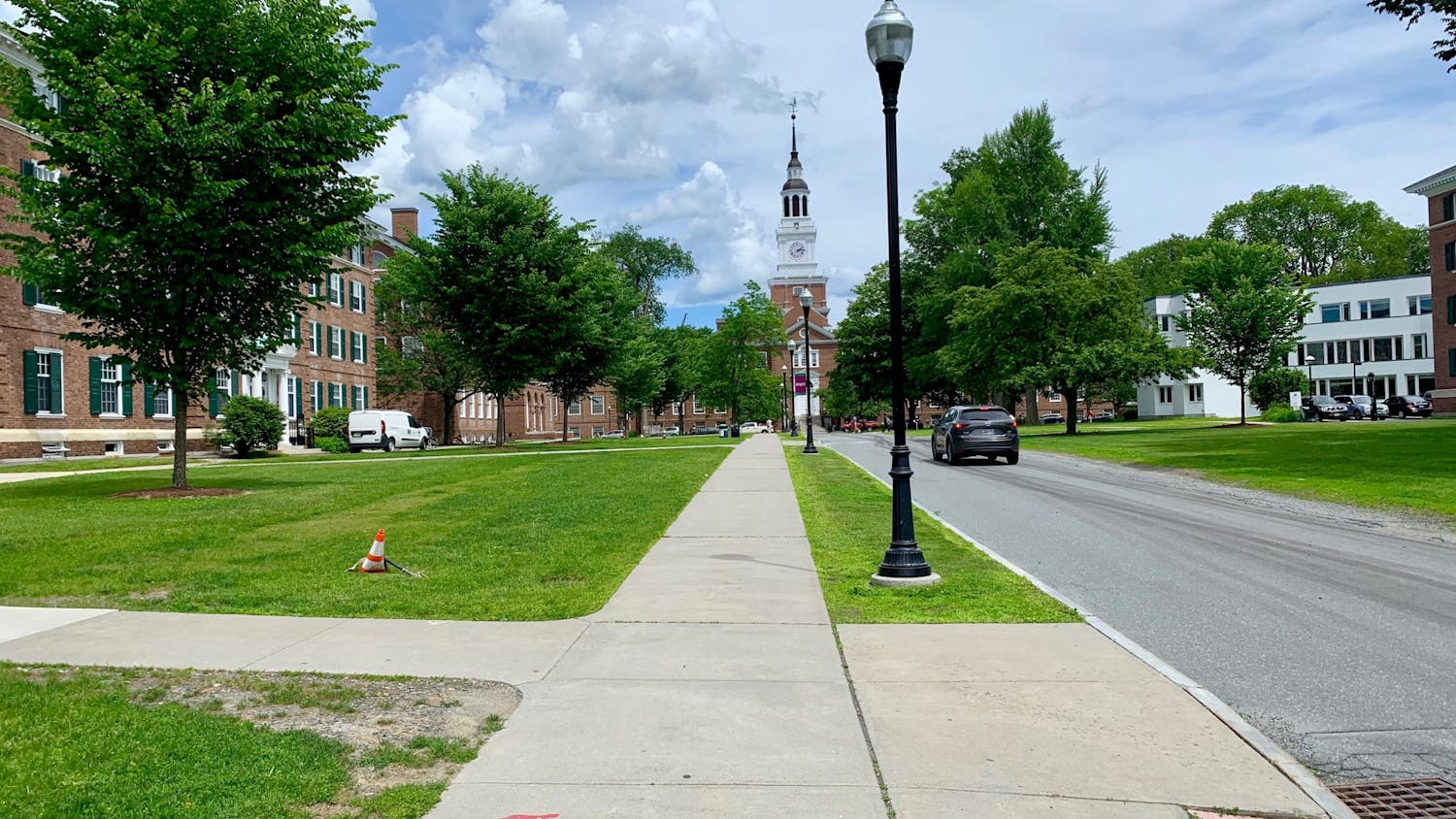“You’re still concussed?” Yes, still. If you had told me four months ago that I would still be dealing with a concussion — well, I would have preferred that you didn’t tell me. Concussions, also referred to as traumatic brain injuries — or TBIs — affect millions of Americans annually and are certainly no stranger to college students. Varsity athletes and even their NARP counterparts are at risk; a slip playing pong in a frat basement or a fall on the Dartmouth Skiway — as in my case — can all land a Dartmouth student in the same place: concussed.
Rest and a complete break from screens is the general prescription given to someone with a concussion. If students follow these guidelines, they're expected to have a relatively short recovery time frame; although more serious concussions can last for months or longer. Student Accessibility Services can provide resources and match injured students with an advisor who can advocate on their behalf. Further, concussed student-athletes have both a medical support team and work closely with assistant director of Dartmouth Peak Performance Lyndsay Ostler.
According to Ostler, her main role is advising student athletes in anything connected to academics, which includes handling injuries. Ostler explained that concussion symptoms are “unique” and vary from student to student.
She emphasized a key fact about TBIs — there is no expected timeline, symptom expression or recovery plan that fits every injured student. As such, support exists on a personalized basis for each individual injured athlete.
“[Recovery] is very individual by student and what they need and what their limitations are,” Ostler said. “… So we try to work through it in as individual a case as possible and communicate to their professors their needs.”
In my experience, professors and SAS have been nothing short of accomodating. This understanding and safety net when dealing with a debilitating injury definitely makes managing the symptoms easier. However, a common problem in concussion recovery that students expressed is not with accommodations or professors, but with their own relentless attitudes as Dartmouth students.
A school like Dartmouth, with its “work hard, play hard” mentality, crammed ten-week terms and general fast-paced atmosphere, makes any concussion specialist shiver. A TBI requires rest; finishing that paper despite searing head pain is what prolongs recovery.
Steven Hadley ’21 suffered a concussion during soccer practice his junior fall. The injury was not something that put him out of the classroom for a week or two, though — it was far more severe. Hadley explained that the concussion damaged the “connection between [his] brain, balance and vision,” requiring him to go to vision physical therapy. The entire recovery process ended up taking two and a half months.
Hadley added that his desire to keep up his grades and maintain his course load contributed to his prolonged recovery.
“Obviously, having a concussion is not ideal for a Dartmouth term with how condensed it is,” Hadley said. “… I couldn’t rest as much or devote as much time to physical therapy, and though I was still a successful student, everything took me twice as long.”
Jordan Paff ’23 shared similar thoughts about recovering from a concussion while handling a Dartmouth term. During her freshman winter, she sustained her fifth major concussion and managed severe symptoms with a rigorous course load. She kept going with classes despite the difficulty and said she “pulled through with great grades but was tired and anxious a lot.”
“I think a lot of Dartmouth students are not willing to let up academically, and I definitely fall into that category of ‘okay, I’m going to sacrifice a lot of mental health, rest and general physical wellbeing to get grades during this term,’” Paff said.
Though she knew it prolonged her recovery, she believed that it was worth it in the long run to maintain her grades.
“I made it through … and I think there are terms we just make it through, and that’s okay,” Paff said.
I find myself wholeheartedly agreeing with Paff; after sustaining my concussion in January, I chose to forgo rest to keep up my “Dartmouth” lifestyle. I went through the virtual rush process with sunglasses — which supposedly earned me the reputation as “the concussed girl” — drove my friends to social events, exercised and most importantly, continued on with my remote internship. My symptoms were brutal, but I didn’t let that stop me from trying to do as much as possible; never once did I let something like a sports injury or external forces stop me from giving 100%. I banked on the fact that, with time, my concussion would surely go away.
Looking back now, I don’t necessarily regret my choices, but it put me in a precarious position for spring term. With persisting symptoms, I now find myself in physical therapy, taking a light course load — ultimately sacrificing classes I was excited to take — and feeling quite a bit of FOMO as I try my best to rest.
Dealing with a concussion and its symptoms is isolating, frustrating and painful. And while you can certainly try to push through, that doesn’t work for everyone (like myself), and there’s a bigger lesson to be learned. The pandemic showed us how a health concern can essentially stop the world. Why doesn’t a personal health concern — a brain injury, no less — do the same for the Dartmouth student? If I’ve learned anything over the past four months, it is that putting yourself and your health first is a sacrifice that you may have to make; this decision takes its own internal fortitude to do so in an environment like Dartmouth.




